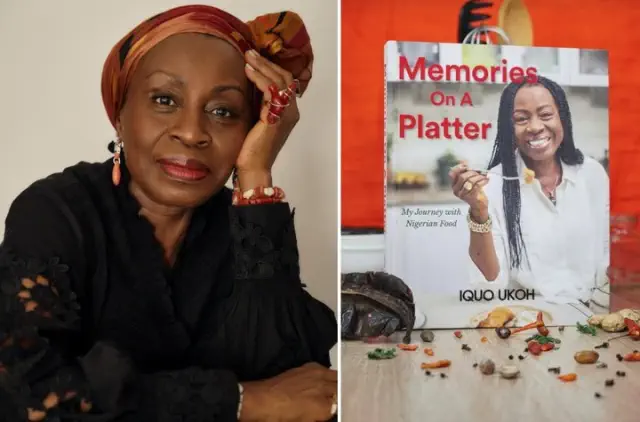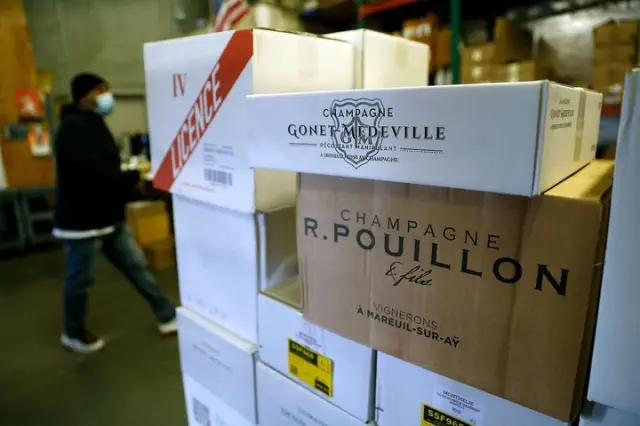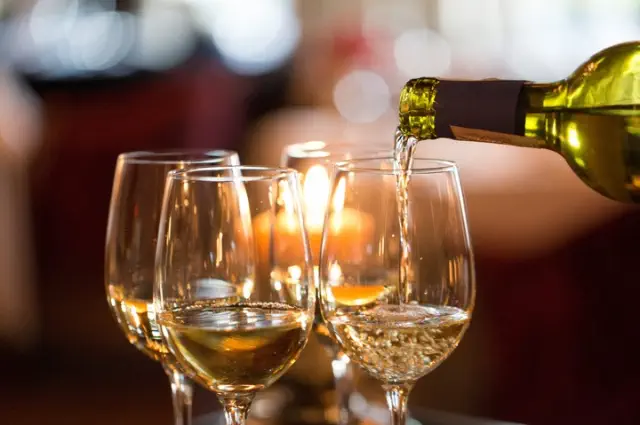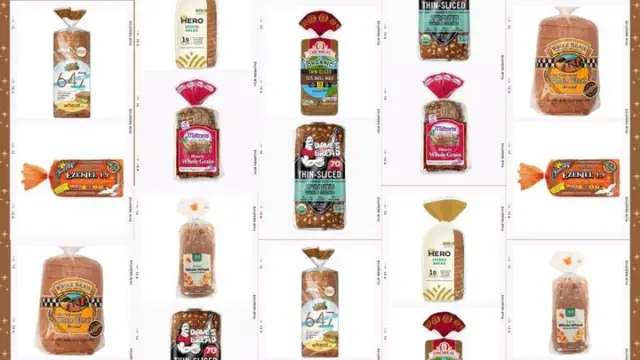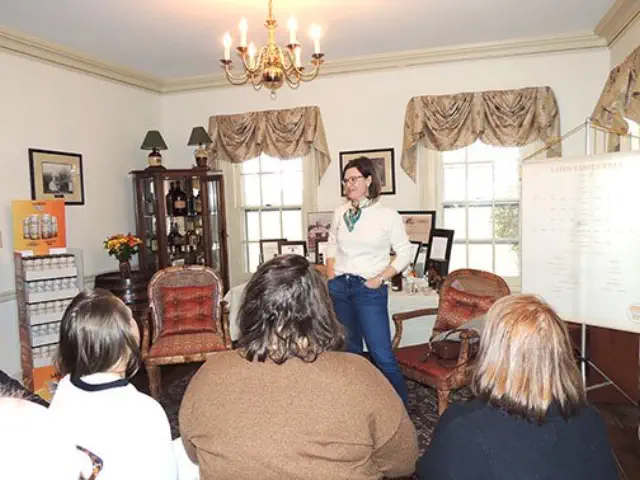
View pictures in App save up to 80% data.
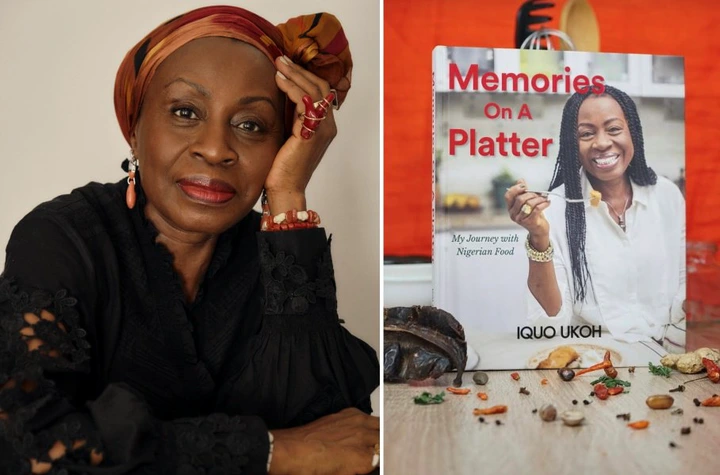
View pictures in App save up to 80% data.
Written by Aria Brent
AFRO News Contributor
[email protected]
Iquo Ukoh is a Nigerian food blogger and expert with over 30 years of experience. Her passion for West African cuisine is rooted in her rich heritage and her desire to share it with the rest of the diaspora. Her new book “Memories on a Platter: My Journey with Nigerian Food” shares some of her most treasured recipes, allowing readers to truly get in tune with Ukoh’s experiences–all the while getting a taste of Nigeria.
AFRO: What was your entry point into the culinary arts?
IU : I studied nutrition and dietetics as my first degree and then I joined a multinational food company. However, I’m the first daughter in the family so I was thrown into the kitchen at a very tender age. In the part of Nigeria where I come from, women are known for their culinary prowess and I could not escape that. I was the one that was in the kitchen most of the time. Yes, I have a sister, but the whole responsibility of taking care of the kitchen and helping mom in the kitchen rested on me.
AFRO: Can you share your journey of moving from a science-focused role in the food industry to working in marketing and media?
IU: For about 35 years I was working for a company and I was actually in marketing. It was a food company– 35 years of my life was around food, but I was using marketing for food, which was more or less understanding the media and how to promote food.
As I approached retirement from my regular nine to five job, I thought to myself, “The best move now is to immerse myself in the culinary world.” I had started food blogging shortly before my retirement.
Upon my retirement, I dedicated myself entirely to food blogging, marking the beginning of my full-time journey in the culinary media world. My travels throughout Nigeria during my previous work made the transition into food blogging a seamless one for me.
AFRO: Congratulations on your new book! I’d love to hear more about it. What was the inspiration behind “Memories on a Platter: My Journey with Nigerian Food”?
IU: When I started food blogging, I started clearly seeing the gaps that were in the food space in terms of documentation. But just to backtrack a bit, I had my mom stay with me for about two years before she passed and as I was still building recipes and posting and all of that I asked her to share with me a recipe I remember from my childhood that my grandmother used to make. And by this time, my mom was 90 herself and she could not remember the recipe anymore.
That got me thinking that I needed to quickly document recipes that I have and the one she had given to me so that I can actually confirm some of those recipes. I also did this with recipes I had gathered whilst working throughout most parts of Nigeria. I felt it was my place to document Nigerian food in a way that I believe the global audience and Nigerians themselves would appreciate. Yes, there were a couple of recipe books largely focused on recipes but the story side of the relationship Nigerians have with their food was not told– this was my inspiration for “Memories on a Platter.”
AFRO: What do you want readers to take away from your book ?
IU: The book “Memories on a Platter” is a way for me to preserve the Nigerian food culture. My dream is for Nigerians to better understand the relationship they have with food. I’ve been seeing a lot of fusion food lately and I worry that over time we may lose the originality of our dishes. Someone needs to document this, and that’s what I’ve started to do. I want younger chefs to know our ingredients and how they’ve been traditionally used so they can draw inspiration from them and adapt them to today’s reality.
Another source of inspiration for this book is the Nigerian diaspora. When you're living far away from home, it's all too easy to disconnect from your cultural roots and heritage. This book serves as a reminder, helping individuals remain anchored to their origins and the significance of our cuisine. Ultimately, it's our food, music, and language that bind us to our culture. Food, in particular, is crucial in maintaining that connection.
This book has several objectives: to assist those in the diaspora in maintaining their cultural connections, to motivate aspiring young Nigerian chefs to explore and innovate upon traditional recipes and ingredients, and to acknowledge the profound role food plays in our lives. It goes beyond mere recipes; I've woven in personal stories and incorporated Nigerian languages to illustrate the significance of food in our everyday experiences. Through a variety of situational photographs taken throughout Nigeria—rather than just polished studio images—I aim to vividly portray these dishes. Ultimately, my aspiration is to honor and safeguard the vibrant legacy of Nigerian cuisine and culture.
AFRO: What do you want the world to know about Nigerian cuisine ?
IU: First of all, I think the world should know that there’s a lot of diversity in our food and our culture. We’re not just about Jollof rice– that’s the first point. The other thing is that we have flavors, layers of flavors in fact, that could be appreciated by the rest of the world. Just as we have appreciated food from other cultures, Nigerian food and its culture is quite vast and diverse and I must say, deep, if I can use that word. The third thing is that whilst the world has come to appreciate our music, fashion, etc., I think it’s our turn now to showcase our food.
It's high time we share our culture with the world and encourage others to savor our culinary delights. Truly, the ingredients found in many of our traditional dishes are widely accessible, making it easy for anyone to experiment with our recipes. This is the essence of Nigerian cuisine that I wish to introduce to a global audience.
AFRO: How are you looking to impact the Nigerian culinary arts scene ?
IU: I have several platforms where I continue to discuss Nigerian food and its deep connection to our culture. On YouTube and across most of my social media handles, I’ve shared numerous recipes and will continue to do so. More importantly, I believe Nigeria is beginning to approach food from an intellectual perspective. This year, we held our first Food Summit, and I’m excited that an even larger platform is planned for next year. I was privileged to share my thoughts there, contributing to the effort of helping the younger generation appreciate Nigerian cuisine.
As I look forward to 2025, my goal is to organize a variety of immersive events that will help realize this vision. These gatherings will be enhanced by social media, allowing us to spread the dialogue about our culinary traditions and culture to a broader audience. Our efforts to promote and honor Nigerian cuisine will persist, and we are preparing to accomplish even greater things in 2025.
